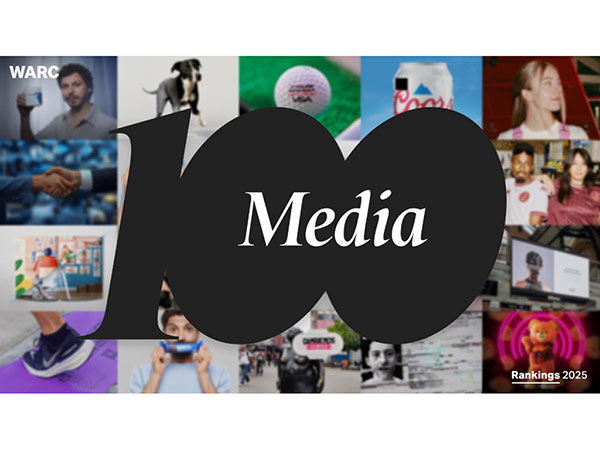News - Advertising
Webedia’s breakthrough study reveals that 82% of Arab mothers do not relate to the ads they watch
May 9, 2023

Throughout the months of January and February 2023, Webedia and its advisory firm Native conducted a survey covering 6,200 Arab mothers, of which 60% were between 24 to 44 years-old, the study was conducted to deepen the industry’s understanding of how to produce relevant and meaningful marketing content. This was done in light of recent studies showing that Arab mothers drive 70-80% of purchase decisions, the ability to target this group has become a necessity to many brands.
Alarmingly, the survey showed that - from the perspectives of Arab mothers - the industry seems to have failed to represent them.
Commenting on the study and its results, Webedia’s Group CEO, George Maktabi, has stated: “at a time when Arab mothers are going through important societal and professional transformations, the “Marketing to Arab Mothers” study reveals alarming findings on the nature of the advertising sector”. He continued that “This study does not aim to discredit the advertising sector but rather draw attention to grave lapses and put forward a recovery and transformative roadmap that puts the people back at the center.”
The illusive power of 3rd party data
Access to third party data has surely revolutionized marketing & advertising by opening up a plethora of content production techniques. It has given the sector timely access to consumption patterns of tens of millions of consumers, and this has created the perception that “we know everything about everyone.” But the study showed exactly the opposite, and it’s important that all those concerned reflect on what is driving this misperception. It showed that there is a simple-minded understanding of Arab mothers by almost all brands, and that the blind use of third-party data has created an inflated illusion.
According to Ahmad Abu Zannad, founder and lead strategist at Native: “Data on media consumption could reveal important findings on the digital identity and online behavior of “female-Arab-consumers”, but beware of the allure of assuming you know her inside-out, for the reality is deeper and much more complex for an Arab woman. And the assumptions that we know her are resulting in ads she doesn’t even relate to.”
By limiting a marketing decision to a few metrics rather than an organic conversation with diverse women and those who are continuously engaged with these women, the advertising sector is at risk of not only becoming irrelevant, but also repulsive to Arab mothers.
The study reveals that 82% of the surveyed Arab mothers do not see themselves in the ads that they encounter, while 77% feel they are misrepresented and 67% feel that the image portrayed doesn’t represent reality.
Equally alarming, more than half of those surveyed (at 56%) saw zero resemblance between their identity as Arab mothers and the image presented to them in ads. For instance, do you think that Arab mothers want to see shiny impeccable houses and extravagant dining tables at a time when they are struggling to achieve a work-life balance? And this is only one image pulled out from thousands of ad campaigns, where many similar images follow suit.
Webedia connects with the multiple identities of “Arab mothers”
The Webedia network with its own proprietary data sources from its diverse content platforms is empowered to maintain personal, authentic, and sustained connections with Arab mothers throughout their various life stages and in their various capacities as women, as Arabs, as mothers, as professionals, as fashionistas, as socialistas etc.
On Yasmina, Webedia gets to meet the aspiring young professional who is balancing her eventful social life with her career-driven schedule.
On 3a2ilati, the same woman is seen striving to keep the work-life balance of a busy modern mother, who still remains at the center of her Arab family despite the growing role for the father. She is also seen exploring nutritional options, experimenting with new cuisines and exotic dishes within the most practical ways at Atyab Tabkha. And finally, she checks-out Saudi Gamer to connect with her teenage children in an attempt to bridge intergenerational differences.
Self-love and individualism as an empowering starting point
Women visit diverse platforms because they no longer relate to one identity. These transformational stages mean that multiple identities define they are, and a meaningful marketing campaign is one that succeeds in presenting content that reconciles these multiple identities in a manner that is engaging, trust-worthy and empowering. The data that Webedia’s multiple platforms collect indicate that Arab mothers and Arab women are seeking to reinforce their own independence, and their starting point is self-love.
According to a recent survey on Yasmina, more than 66% of Arab women stated that only recently are they learning how to practice self-love in an individualistic manner, after decades of catering to the needs of everyone but herself.
For the first time, beautification and parenting are not presented as a tradeoff and women no more accept this dichotomy of choices. Given that she has been leading a much more active lifestyle, beautification is becoming more about feeling comfortable and confident in everyday activities like at work or at the gym. For instance, a Saudi woman is now interested in a various range of outfits to cater to an ever changing personal, social, and professional activities. When we specifically asked Saudi women on the hacks they are mostly interested in, 59% expressed interest in beauty hacks and 41% in fashion hacks.
A revival of an already outdated advertising approach
“Marketing to Arab Mothers” produced alarming but insightful findings. The key is to treat these findings as a wake-up call and initiate a regional discussion on the status of advertising in the Arab region, how this will shape its future and, more importantly, be reshaped by it.
Building on this point, George Maktabi stated that “There is no denying that the influence of Arab mothers will only grow in the future, it is a fact that they are a major force that will shape the future of commerce in our region; be it through their growing roles as individuals, and/or as caretakers of future generations.”
The advertising industry cannot afford to disappoint Arab mothers, and it carries the duty of standing up to her new values and her new aspirations.
On this point, Ahmad Abu Zannad commented “The approach of finding where she is and intrusively bombarding her with messages, she doesn’t necessarily relate to has become outdated. Arab mothers have become more outspoken and more decisive, therefore, let us be all ears to what they have to tell us.”










